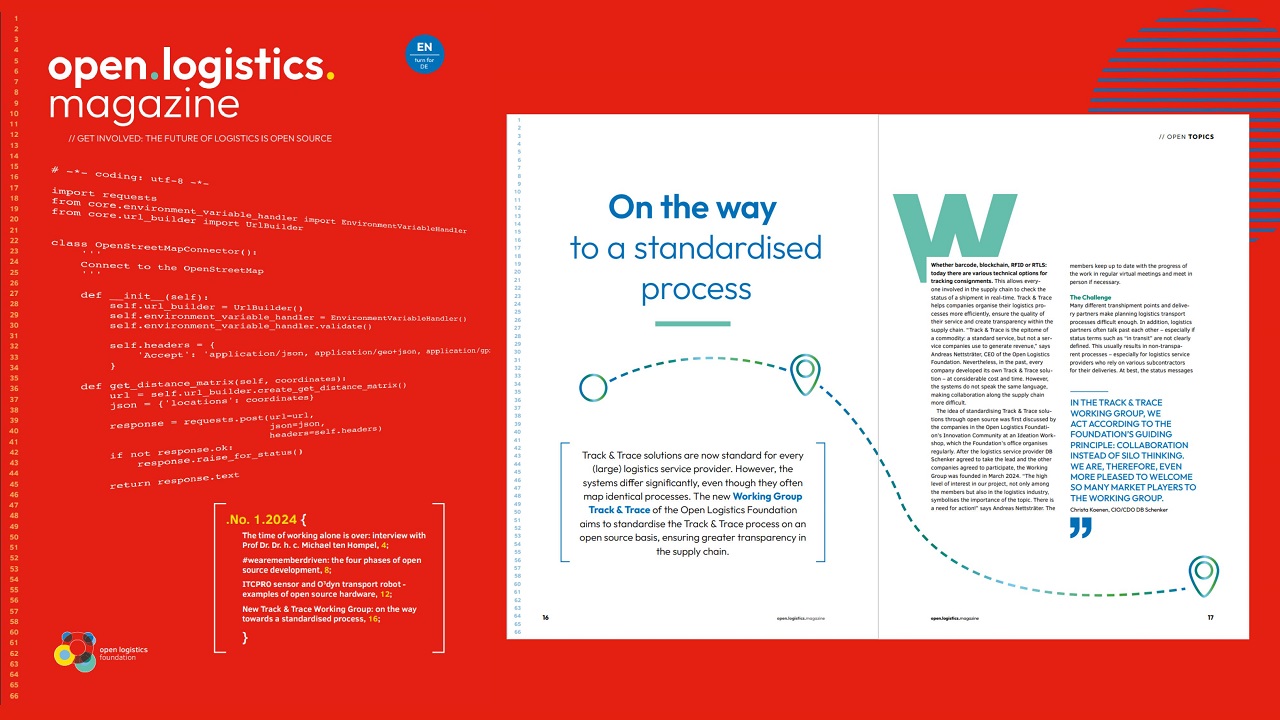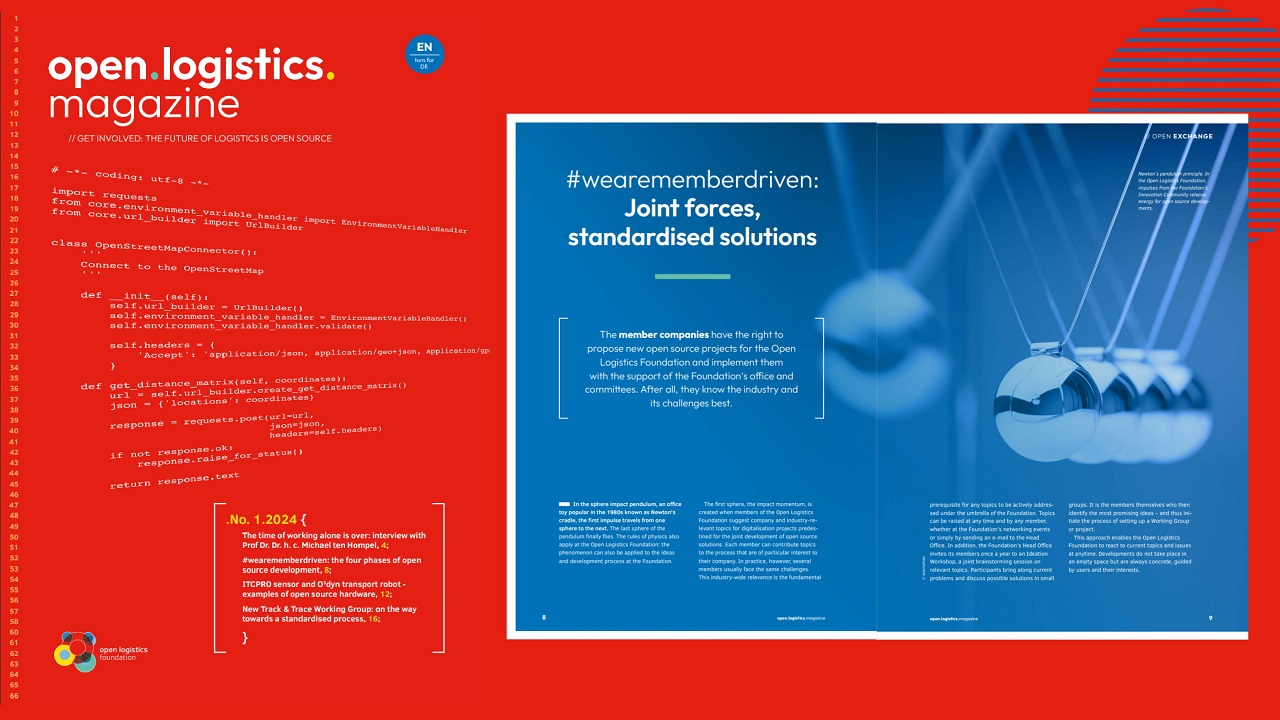COMMUNITY SOFTWARE IS USUALLY DEVELOPED TO CREATE INDUSTRY STANDARDS.
Open source software has become an important, perhaps even the most important component of software products. For today there is practically no software that is not also based on open source or contains open source components.
Community vs. vendor software
Now, there are two types of open source software: community open source software, which is developed in a community for a community and vendor open source software. The latter is developed by a single company in a closed process. Such “single-vendor” companies often use socalled copyleft licences so that they cannot face competition from other manufacturers who could drive prices down. They consolidate their central position with registered trademarks. In the process, the companies usually build up a community in which freelance developers or developers from other companies adapt the product to their needs and thus improve it. However, the rights to these changes and enhancements are then transferred to the original company.
The situation is completely different with “genuine” community open source software. It is jointly developed by a group of programmers or users – in a community – and based on an open governance process. The Open-Source-Licence allows companies that have not co-developed the software not only to use it, but also to modify it and even use it for commercial purposes. The classic and also best-known open source communities include Linux (initiated in the early 1990s, foundation status since 2007), Apache (founded in 1999) and Eclipse (first project in 2001).
Community open source software is usually developed under the “protective hand” of such associations or organisations with a non-profit character, mainly foundations. The first and most important open source organisations that emerged were still predominantly developer-driven. Their mission was mostly to stand in the way of an overpowering monopolist or competitor. However, more and more, user-driven communities gained in importance: companies came together in projects or working groups, foundations, or cooperatives to pool their strengths. In such communities, the two essential characteristics of open source became apparent: open cooperation in the process and open software as a result.
From project to foundation
There are now numerous exciting examples of global user communities – from The Autoware Foundation, which hosts an open source project on autonomous driving, to GNU Health, run by a non-profit organisation GNU Solidario, which promotes the use of free software in public health and education, to the Open Geospatial Consortium (OGC), which promotes consensus-based open standards and best practices related to the use of location-based technologies, such as geospatial data. In Germany, the industry took notice when three large German automotive companies that compete came together in 2014 to form a working group under the Eclipse umbrella: AUDI, BMW and Daimler. Together, the manufacturers founded the openMDM working group and have since been driving the development and dissemination of open source tools for the management of measurement data, as a working group of the Eclipse Foundation. Previously, the vehicle manufacturers had worked rather loosely on solutions for the Open Data Service (ODS) standard of the Association for Standardisation and Measuring Systems (ASAM). The working group now gave this work a new framework and a binding character. The energy sector also recognised sign of times: network operating companies, IT service providers and non-profit research institutions joined forces to develop open source software for network operators – initially as part of a consortium, and since 2017 as a separate organisation: openKONSEQUENZ, or OpenK for short, is run as a cooperative. The community develops solutions for the smart grid – a project of the century that concerns everyone and that none of the players can manage alone or on their own. The Open Logistics Foundation, founded in 2021, also joins the list of user communities.
A WELL-ESTABLISHED OPEN SOURCE ORGANISATION PROVIDES A FAIR PLAYING FIELD FOR COMPANIES TO DEVELOP OPEN SOURCE SOLUTIONS.
A game with clear rules
Of particular importance for a user community is a (well-established) open source organisation that offers its members a fair and equal playing field, sets clear rules for management and regulates the intellectual property of the results of the work. This is success factor number one. Software development is social by nature – so the second success factor is the companies themselves: in Working Groups and projects, they drive the development of software they need for current applications for use in business. When companies that compete with each other work together in a user community, the basis for this cooperation is that the software they develop is not market-differentiating or competition-differentiating, but instead establishes a standard. Particularly interesting are models of user communities that – like the Open Logistics Foundation – are characterised by two-tier ecosystems: Here, commercial products and services can and should emerge from projects.
More than a philosophy
But, the development of community open source software also has stumbling stones. As with vendor software, there is the possibility of dependencies. This can always be the case if a company becomes disproportionately involved in working groups or projects and thus dominates the process, or if it accumulates too much knowledge, usually without any intention but out of interest. In fact, however, potentially relevant users are then kept away. It is the task of the organisation to ensure that this does not happen and to counteract it. In this way, open source does not remain “just” a philosophy but becomes a versatile business strategy.
With the collaboration of Annika Kamen, Communications and Marketing, Open Logistics Foundation
Prof. Dr. Dirk Riehle is a Professor of Computer Science at the Friedrich-Alexander University Erlangen-Nürnberg and an expert in open source, inner source, and product strategy. Before being appointed professor, he led the open source research group at SAP Labs, Palo Alto, California (Silicon Valley) and worked as a software developer, software architect and development manager for software start-ups and large companies in Bosten and Zurich. Dirk Riehle runs a blog at www.dirkriehle.com and tweeted as @dirkriehle.
This article was published in the second issue of the Open Logistics Magazine. You can read the entire magazine and register for future editions here.




